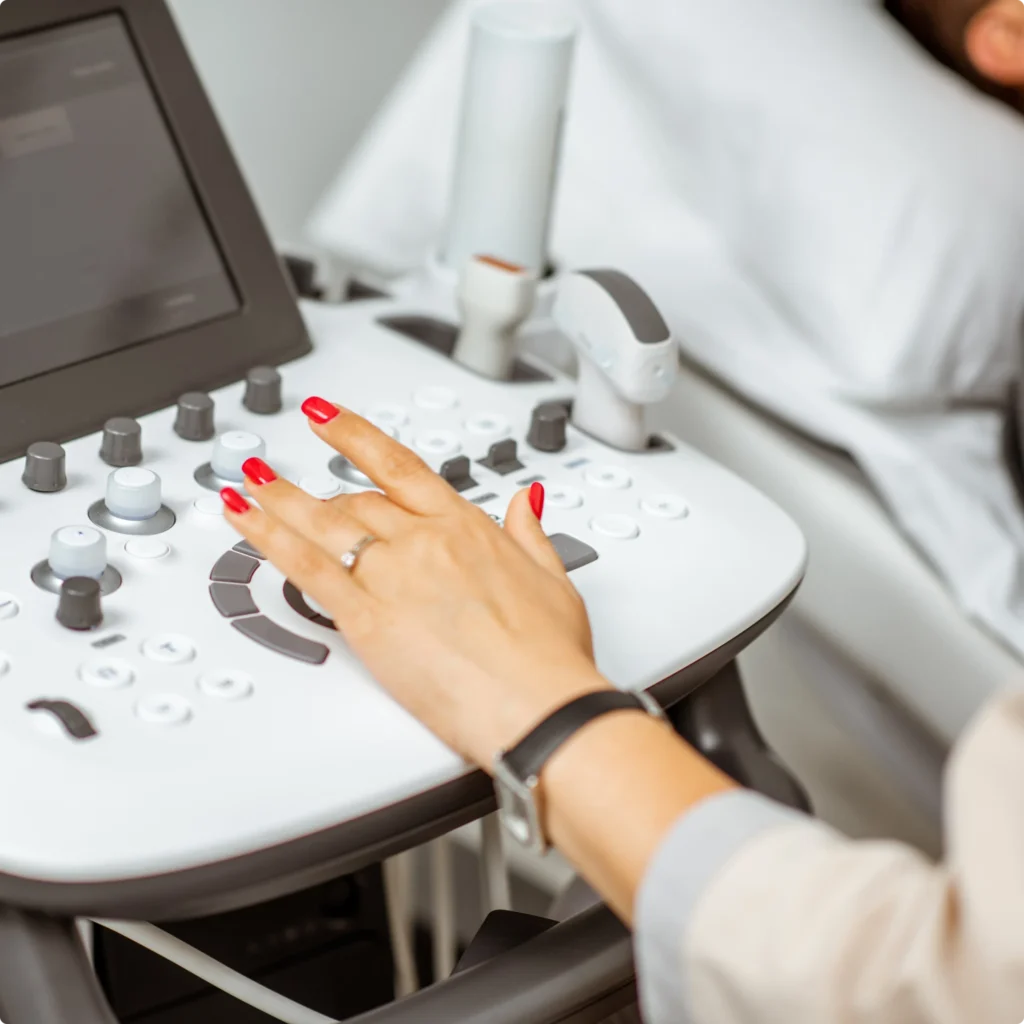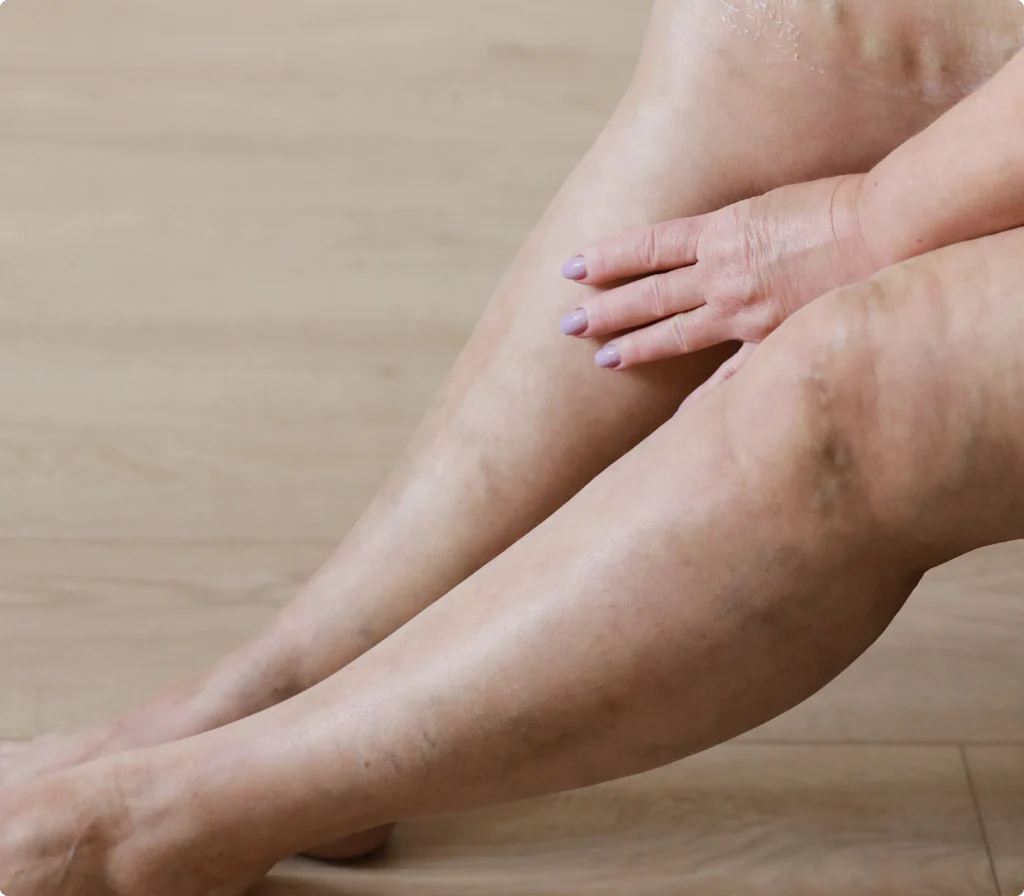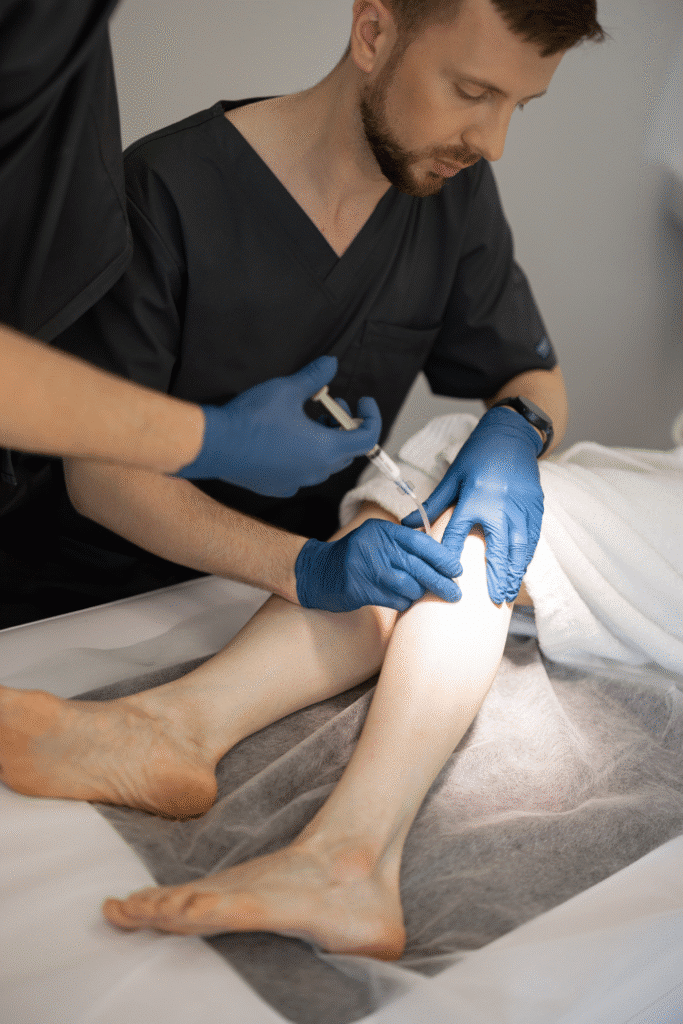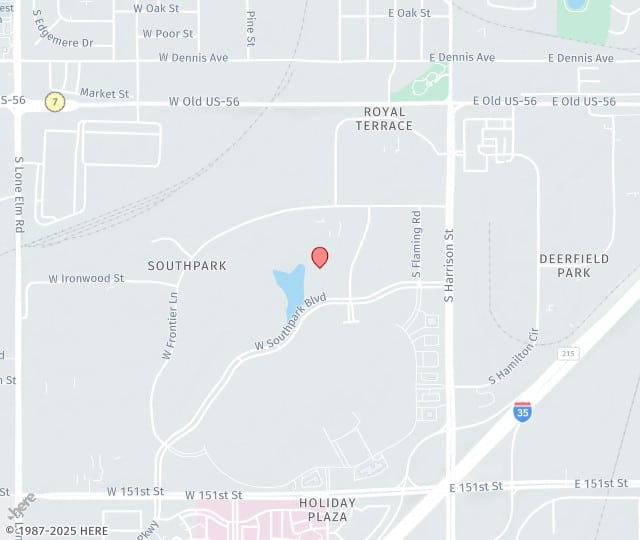Achieve smooth, flawless legs with VenaSeal at Vein-ity, the quick and effective solution for varicose veins.

Say Goodbye to Varicose Veins
What Is VenaSeal?
At Vein-ity Vein Care Centers of Kansas, we’re proud to offer VenaSeal, a virtually painless closure system that uses medical adhesive to seal varicose veins, providing a comfortable treatment experience and rapid recovery.
If you’re dealing with the discomfort and visible signs of varicose veins, it can be hard to feel confident in your appearance. VenaSeal provides a modern solution by directly targeting the underlying problem with precision and care, helping you achieve smoother, healthier-looking legs.
During the VenaSeal procedure, a small catheter is used to deliver a medical adhesive directly into the affected vein. This adhesive seals the vein shut, causing it to collapse and gradually fade from view. As blood flow is rerouted to healthier veins, you’ll notice significant improvements in both the appearance and function of your legs.
Is VenaSeal Right for You?
If varicose veins are affecting your comfort, confidence, or quality of life, VenaSeal may be the perfect solution. Ideal candidates for VenaSeal are those who:


How the VenaSeal Procedure Works
Here’s what you can expect when you choose VenaSeal at Vein-Ity:
Vein-ity is a Pro-Nox™ Comfort Zone
Safely Minimize Treatment
Pain, Stress, & Anxiety With
Pro-Nox™
Frequently Asked Questions
Most patients begin to see improvements within a few weeks as the treated vein is absorbed by the body. Full results, including a reduction in visible varicose veins, typically become noticeable within 2 to 3 months.
Recovery from VenaSeal is quick, with most patients resuming normal activities within a day or two. You may experience mild bruising, swelling, or tenderness at the treatment site, which generally resolves within a week.
VenaSeal is a safe procedure with a low risk of complications. As with any medical treatment, there are some potential risks, including mild bruising, skin irritation, or allergic reactions to the adhesive, but serious complications are rare.

